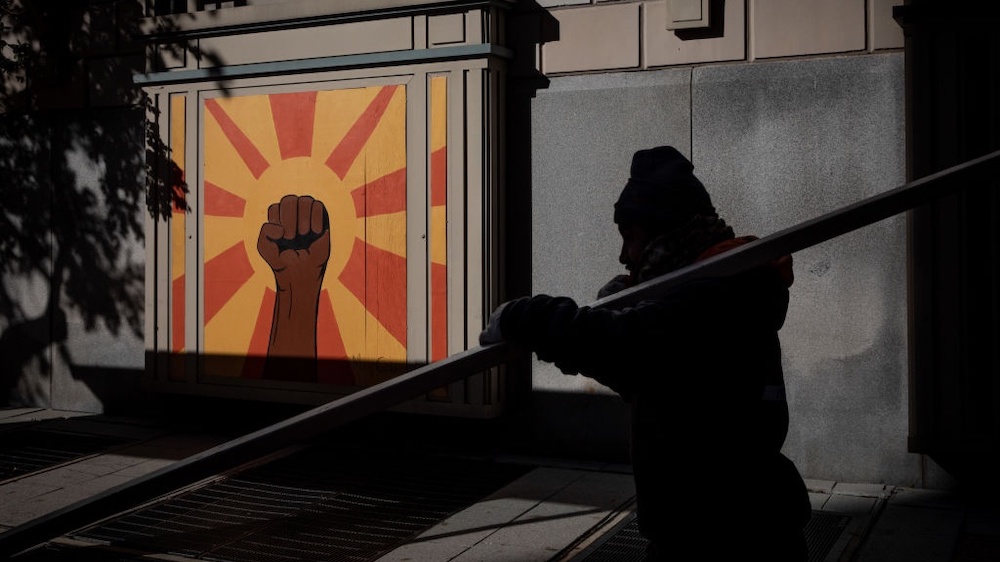If you’re interested in sharing your opinion on any cultural, political or personal topic, create an account here and check out our how-to post to learn more.
____
Guns are flying off the shelves. And some businesses in downtown Washington D.C. and other cities have boarded their windows ahead of election day, anticipating one thing: Violence.
"This is their final stand," said a 35-year-old Black woman from South Carolina in an October focus group. "I don't think we should expect them to just pack up and head home if he loses. He wants them to go crazy, and they will gladly do it."
Such comments underscore a highly prevalent sentiment in Black America: the expectation of post-election violence. Though Trump has warned suburban families that a Joe Biden's presidency would pave the way for the invasion of liberal mobs, Black Americans fear violence from those same suburbanites listening to Trump's message.
Polls indicate that many Americans have expressed concerns about post-election violence. Our BlackTrack survey illustrates this sentiment is highest among Black voters. Nearly half of Black voters anticipate violence regardless of whether Donald Trump (49%) or Joe Biden (41%) win the election. Black voters know this will affect them — almost half of Black voters (40%) believe they will likely become the target of that violence.
But what's behind this fear? And what insights can data and history offer to our understanding of this phenomenon?
American History
History provides us with some context for Black Americans' fear of violence. Examples of violence to prevent Blacks from voting are replete in much of America's electoral history. The end of American slavery birthed the Ku Klux Klan, America's earliest terrorist group, which targeted politically active Black Americans, often with deadly violence. Infamously known as the Red Summer of 1919, the summer following the end of World War I earned its nickname due to high fatalities, as white mobs targeted Black Americans with lynching and other violent acts. In this case, it was a reaction to the nearly 400,000 Black WWI veterans who returned home demanding more freedoms, including the right to vote, for their military service. The American trope continues up through the Civil Rights Movement of the 1950s, of which a key feature is the pursuit of voting rights.
Today, the comparable movement is #BlackLivesMatter. The movement raised the nation's consciousness on police brutality, garnering wall-to-wall television coverage on Black America's plight and systemic racism. This narrative, combined with a Joe Biden win and the first Black female vice president's ascendency, could lay the groundwork for reactions that many Black Americans fear.
Election Uncertainty
If the election isn't called on Tuesday night, Black voters will begin to lose confidence in the integrity of the election. 53% of Black voters believe all votes should be counted by some point within the week. In the space of uncertainty, Black voters fear many Trump supporters will fill it with violence. Even this weekend, Trump continued raising election rigging specter and casted doubts on the peaceful transfer of power. To many Black voters, such calls are heard as urging violence. Many Black Americans can imagine a scenario where weeks go by without a winner declaration.
If the dominos begin to fall in Joe Biden's direction, Trump supporters may believe the President when he says the election is rigged. By sowing the seeds of discontent early, Trump has already laid the foundation for his supporters to react aversely to a potential loss. What could happen next is driving the fears of Black America.
Even a Trump win does little to quell the fears of Black Americans. According to BlackTrack, nearly 70% would feel less safe as a Black person in America if Trump wins a second term. For many, a potential Trump wins feels as dangerous as a loss.
Police Distrust
Often, Black Americans don't feel protected by the police, and this sentiment is fueling their fears of violence. A majority of Black voters (58%) do not trust the police to protect them in the event of violence after the election. Their longstanding distrust of the police exacerbates Black American fears of violence this week. With distrust in police protection so high, it's no wonder why Black people are arming themselves at higher rates than ever.
A separate study found the highest increase in gun sales was among Black Americans, which rose nearly 60% during the first six months of the year. Despite the data showing Black communities arming themselves at higher rates than the rest of America, 63% of Black voters still say violence is never justified for political reasons.
The messages of division are not new to this cycle. Our leaders have a responsibility to appeal to common values and not exploit our differences for political gain. Every election has its winners and losers, but never in modern American history has a candidate, much less the President of the United States, undermined the validity of an election. His carelessness will cost lives, and Black America will bear the consequences yet again.
